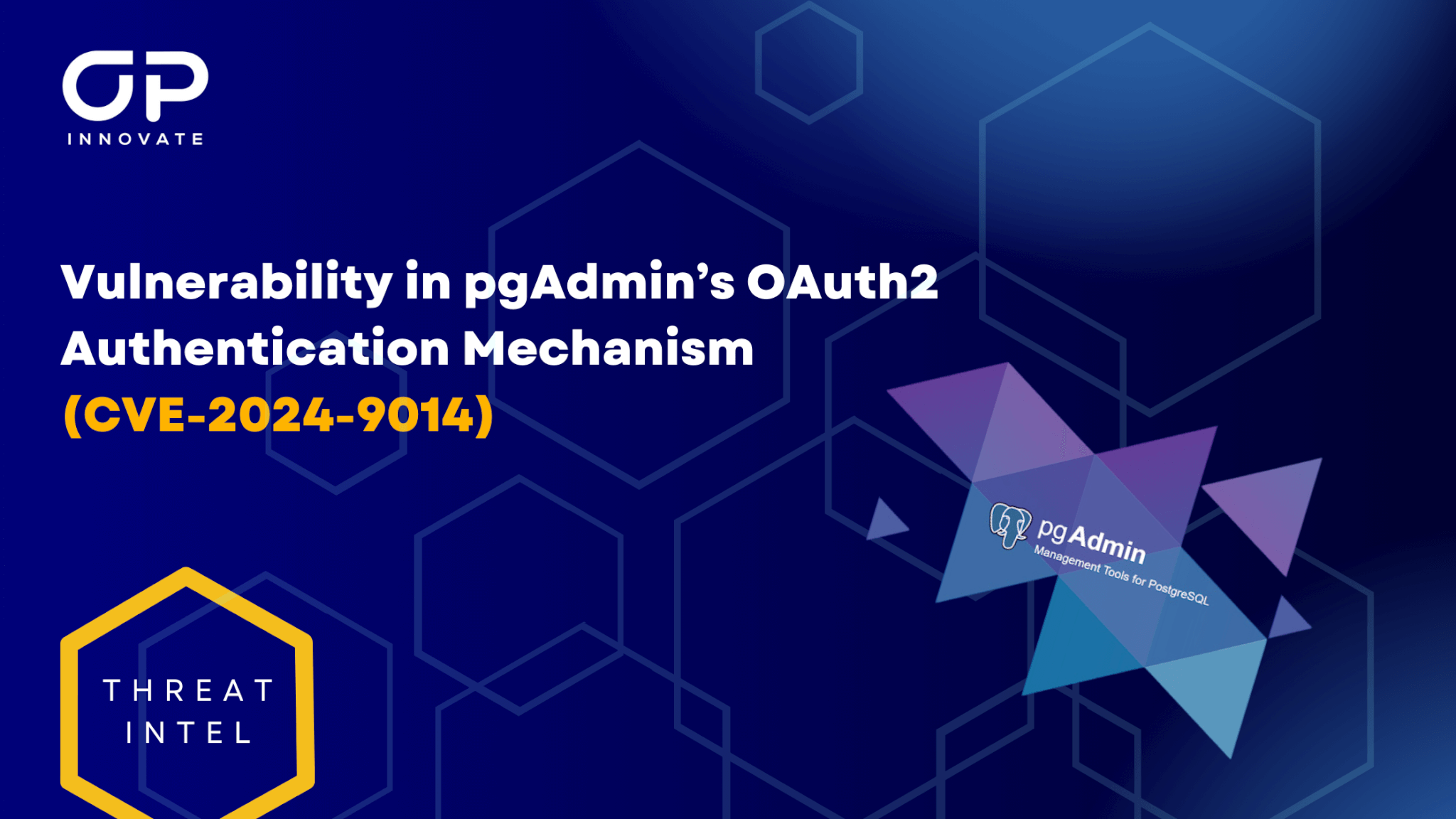A critical security vulnerability has been discovered in pgAdmin, the widely-used open-source management tool for PostgreSQL databases. The vulnerability, identified as CVE-2024-9014, impacts pgAdmin versions 8.11 and earlier, with a CVSS score of 9.9, indicating a severe risk. This flaw can be exploited to compromise sensitive user information through vulnerabilities in the OAuth2 authentication mechanism.
Affected Versions:
- pgAdmin versions: 8.11 and earlier
Patched Version:
- pgAdmin version: 8.12
Vulnerability Details:
- CVE ID: CVE-2024-9014
- CVSS Score: 9.9 (Critical)
- Attack Vector: Network
- Attack Complexity: Low
- Privileges Required: None
- User Interaction: Required (through OAuth2 login)
This vulnerability exists in the implementation of the OAuth2 authentication system within pgAdmin. Attackers can exploit the flaw to gain unauthorized access to sensitive credentials such as the OAuth2 Client ID and secret, which are vital for ensuring secure authentication sessions. If these credentials are leaked, attackers can impersonate legitimate users, potentially leading to widespread system compromises and sensitive data exfiltration.
Impact:
The exposure of OAuth2 credentials can lead to:
- Unauthorized access to PostgreSQL databases.
- Compromise of user data, including personally identifiable information (PII) stored within the database.
- Potential for system-level attacks, such as further privilege escalation and the takeover of administrative accounts.
Exploitation:
The flaw may be exploited by attackers who can intercept authentication flows or craft malicious OAuth2 requests to steal sensitive credential information. Once compromised, attackers could impersonate legitimate users or exploit the credentials for broader attacks against the database environment.
Mitigation Steps:
Immediate Action Required
All users operating pgAdmin versions 8.11 or earlier are strongly advised to upgrade to pgAdmin 4 version 8.12. The pgAdmin Development Team has released this version as part of an emergency security update, addressing the OAuth2 vulnerability and incorporating 13 additional bug fixes.
Recommended Actions:
- Upgrade to Version 8.12: This is the most effective way to secure PostgreSQL environments from this critical vulnerability.
- Download the latest version from the pgAdmin website.
- Audit OAuth2 Configurations: Review and rotate any OAuth2 credentials (Client IDs and secrets) in use to ensure no malicious access has occurred.
- Monitor Database Logs: Set up monitoring for suspicious login attempts or abnormal behavior in PostgreSQL systems that could indicate exploitation of this vulnerability.
- Apply Security Best Practices: Implement network segmentation, least privilege access controls, and two-factor authentication where possible to reduce the attack surface and limit the potential damage from compromised credentials.
Conclusion:
Given the high CVSS score (9.9) and the critical nature of the OAuth2 vulnerability, it is vital for users of pgAdmin to update to the latest release immediately. Failure to do so could expose PostgreSQL databases to unauthorized access, compromising sensitive data and opening up the possibility for further system exploitation.



